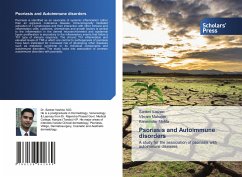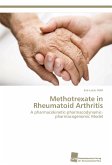Psoriasis is identified as an associate of systemic inflammation rather than an exclusive cutaneous disease. Immunologically mediated activation of T-lymphocytes and their interaction with other immune and inflammatory cells, cytokines, chemokines and growth factors is central to the inflammation in the dermal microenvironment and epidermal hyper proliferation is secondary to the inflammatory events that follow a Th1 type of immune response. The chronic Th1 inflammation and elevated levels of TNF- which are central to pathogenesis of psoriasis have been implicated for increased risk of developing other diseases such as metabolic syndrome or its individual components and autoimmune disorders. The study looks into association of common autoimmune disorders with psoriasis.








